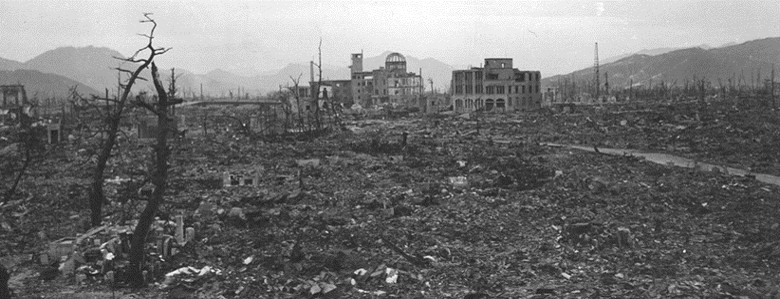Loyola University Chicago
Peace, Justice and Conflict Studies
Welcome
Director's Welcome
World events make the study of peace an urgent need. From the Middle East to the streets of Chicago, violence mars our existence. And beyond the international and the social aspects of peace, we must also achieve peace with our environment. Mastering the three components of the Peace Studies minor (International Peacemaking, Societal Violence and Conflict Resolution, and Environmental Violence and Ecological Concerns) will allow a student to work in an informed manner toward a world at peace.If you are seeking an engaged education focused on significant concerns of everyday relevance, then consider minoring in Peace, Justice and Conflict Studies. Dr. William French Director of Peace, Justice and Conflict Studies
Video

THE PROMISE OF PEACE IN THE SHADOW OF HIROSHIMA AND NAGASAKI: POLITICAL, MORAL AND THEOLOGICAL REFLECTIONS
On Thursday, October 8, from 5:00 – 7:45 p.m., the Peace, Justice, and Conflict Studies Program co-hosted for a virtual program commemorating the 75th anniversary of the atomic bombing of Hiroshima and Nagasaki titled “The Promise of Peace in the Shadow of Hiroshima and Nagasaki: Political, Moral, and Theological Reflections. Keynote lectures were given by the Archbishop of Nagasaki, Joseph Mitsuaki Takami, and Daniel Ellsberg, who famously leaked the Pentagon Papers in the hope that they would end the Vietnam War and is author of “The Doomsday Machine: Confessions of a Nuclear War Planner.” Please click the image above to go to the video recording of this program.
Welcome
"The chain reaction of evil—hate begetting hate, wars producing more wars—must be broken, or we shall be plunged into the dark abyss of annihilation."
About the Program
The broad scope of peace is illustrated not only by Maya Angelou's poem "Amazing Peace: A Celebration," but also by Loyola's promise to prepare our students to lead extraordinary lives. Peace Studies encompasses all five aspects of our promise that are outlined in our strategic plan. Our commitment to excellence leads to "new ideas, better solutions and vital answers." Scholars and religious leaders across the ages, ranging from Jesus to Buddha to Fox, Gandhi, and Thich Nhat Hanh, have taught (or tried to teach) lessons of peace, and we clearly need to apply these ideas to achieve vital answers. Our commitment to service that promotes justice and to the pursuit of truth and care for others are necessary steps on the path to peace and a peaceful world. Our commitment to values-based leadership and to global awareness reflect crucial components of work for peace. Finally, our commitment to faith in God and the religious experience is inextricably linked to the centrality of peace to most, if not all, major religions.

